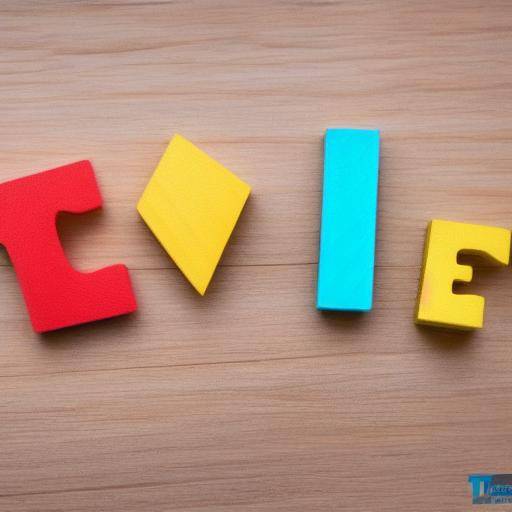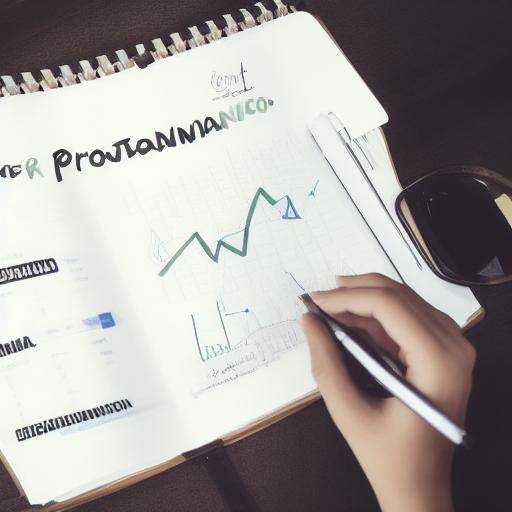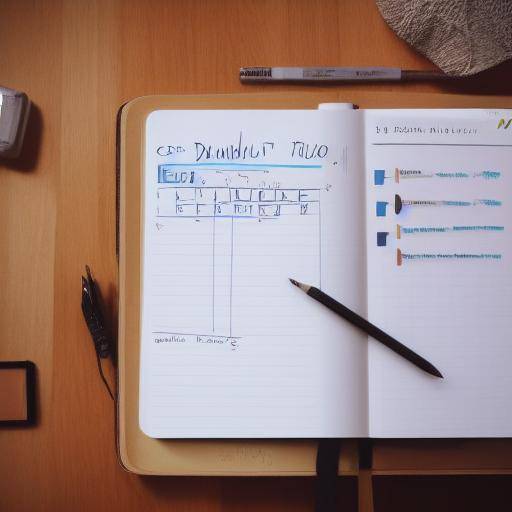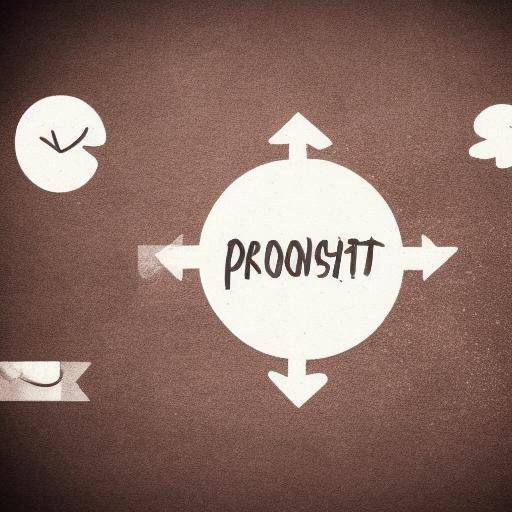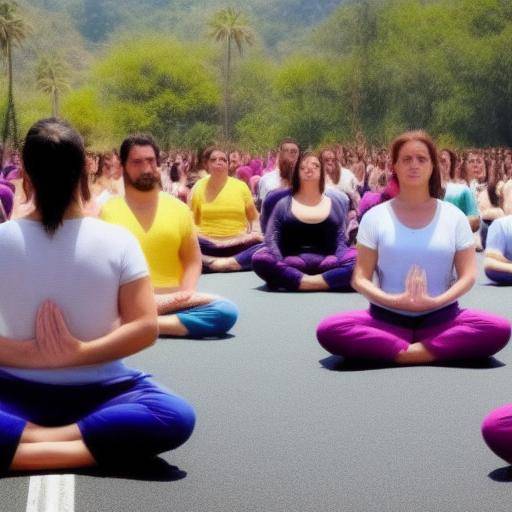
The practice of meditation has been valued since ancient times by its ability to increase self-consciousness and strengthen self-management. In seeking to improve productivity and overall well-being, more and more people resort to meditation as a key tool. In this article, we will explore in depth how meditation can enhance self-consciousness and self-management, as well as its impact on productivity. From its historical origin to future trends, we will carefully examine the benefits, challenges, practical advice, case studies and expert views. In the end, we hope to provide an integral view of how meditation can be a valuable resource for personal and professional growth.
Introduction
The ability to increase self-consciousness and self-management is fundamental both in the personal and professional spheres. Meditation offers effective tools to develop and improve these skills. In a world full of constant distractions and demands, meditation has become a refuge for many seekers of peace and mental clarity. Throughout this article, we will explore how this ancestral practice can positively impact our daily lives.
History and Background
The practice of meditation dates back thousands of years, finding its origins in ancient traditions of Eastern wisdom. Civilizations such as India, China and Japan cultivated and perfected meditation techniques throughout the centuries. From Zen meditation to Vipassana, these practices found their way into the daily lives of millions of people around the world.
Historical developments
Meditation experienced a significant resurgence in the twentieth century, with an increasing interest from the scientific community. Studies on the effects of meditation on the brain and mental health have shed light on their transformative potential. The popularity of meditation has continued to rise, influencing fields such as psychology, neuroscience and stress management.
Cases of Relevant Study
In the field of psychology, many cases of study have highlighted the effectiveness of meditation in the development of self-consciousness and self-management. These cases have revealed how meditation can strengthen the ability to reflect on oneself, manage emotions and make more conscious decisions in difficult situations.
Analysis in Deep
Meditation not only impacts our internal aspects, but also influences our productivity and performance at work. By adopting a holistic perspective, we can understand how meditation can enhance self-consciousness and improve self-management, thus generating a positive impact on our daily productivity.
Benefits and Challenges
Meditation offers a wide range of benefits, including stress reduction, concentration improvement and the strengthening of reflective thinking. However, for many, the challenge lies in consistently integrating meditation into their daily routines. Establishing and maintaining a meditation practice can be difficult in a world full of distractions and responsibilities.
Statistics and Examples of the Real World
Various studies have demonstrated the tangible benefits of meditation in working environments. Innovative companies have implemented meditation programs for their employees, observing significant improvements in productivity, decision-making and conflict reduction. Specific examples show how meditation can impact positively on work performance and overall well-being.
Diverse Perspectives
Meditation has raised multiple perspectives, from traditional approaches rooted in spirituality to contemporary approaches based on neuroscience. Exploring these perspectives allows us to appreciate the richness and diversity of meditation, as well as to understand its potential for the development of self-consciousness and self-management in different contexts.
Comprehensive review
The practical application of meditation in daily life has proven to be essential to cultivate self-consciousness and strengthen self-management. By exploring different approaches and practices, we can understand how meditation can be a valuable resource to improve our self-regulation and decision-making capacity.
Applications and Best Practices
Mindfulness meditation, moving meditation and breathing-centered meditation are just some of the many approaches that have proven to be effective in increasing self-consciousness and self-management. Understanding how to integrate these practices into our daily lives can make a significant difference in our well-being and performance.
Opinions of Experts and Future Perspectives
Experts in meditation and personal development provide a valuable insight on how meditation can influence our self-consciousness and self-management. His detailed views on contemporary challenges and future opportunities reveal a horizon full of possibilities for those who seek to strengthen their self-regulation and decision-making skills.
Comparative analysis
Compare different approaches to meditation and its effects on self-consciousness and self-management allows us to appreciate the diversity and wealth that this practice offers. Identifying similarities and differences between approaches gives us the opportunity to select those methods that best fit our needs and objectives.
Practical Tips and Accessible Recommendations
Let us now decide how to integrate meditation practices in order to improve our self-consciousness, self-management and consequently our productivity. By establishing clear strategies and systematic practices, we can maximize the transformative potential of meditation in our daily lives.
Practical Tips
- Establishing a daily meditation routine can provide a solid framework for the continuous development of self-consciousness and self-management.
- Explore different meditation techniques can expand our repertoire of tools to strengthen self-regulation and decision-making.
- Integrating meditation into key moments of the day, as before an important meeting or facing stressful situations, can offer significant support to manage challenges with greater clarity and calm.
Orientation Step by Step
- Starting with short meditation sessions and gradually increasing the duration can facilitate the incorporation of this practice in our daily routine.
- Identifying a quiet and free space of distractions for meditation can create an enabling environment for the development of self-consciousness and self-management.
- Incorporating additional elements, such as soft music or aromatherapy, can enrich the experience of meditation and strengthen its positive effects on personal management.
Details and Justifications
The path to the effective integration of meditation into our daily life can present challenges. Understanding the reasoning behind these practical advices allows us to appreciate the importance of each step and its contribution to our personal and professional development.
Industry ideas and Expert Reviews
By exploring the intersection between meditation, self-consciousness and self-management from the perspective of industry professionals, we can expand our understanding of how this practice impacts on the world of work and everyday life.
Future Outlook
The application of meditation in labour, educational and personal development environments is experiencing significant growth. The integration of meditation into corporate culture and professional life is seen as an important trend, with a potentially transformative impact on personal management and decision-making.
Interviews
Interviews with opinion leaders in the field of meditation and personal development offer a deep insight into how self-consciousness and self-management can influence productivity and overall well-being. Their contributions enrich our understanding of how meditation is positioning itself as a fundamental tool for personal and professional growth.
Case Studies and Practical Applications
From leading companies to individual entrepreneurs, many cases of study illustrate the real and tangible impact of meditation on self-consciousness, self-management and productivity. In examining these cases, we can identify patterns and principles that reinforce the importance of meditation in decision-making and achieving objectives.
Results and Lessons Learned
The detailed analysis of the results obtained through the application of meditation in different contexts gives us valuable lessons on how this practice can influence personal management and decision-making. Observing both successes and challenges allows us to understand the process of integrating meditation into everyday life and how it influences decision-making.
Examples in Various Areas
Exploring cases of study from diverse industries, such as technology, health and well-being, education and entrepreneurship, provides an integral insight into how meditation can impact self-consciousness, self-management and ultimately productivity in different environments and scenarios.
Future Trends and Predictions
The field of meditation and its intersection with self-consciousness, self-management and productivity continues to evolve. In analyzing current trends and future predictions, we can glimpse a panorama in which meditation becomes a fundamental pillar for personal and professional development.
Emerging trends
The emergence of innovative approaches to the integration of meditation into working and everyday life signals a significant change in the way we perceive and apply this practice. From corporate meditation programs to the inclusion of meditation in education, emerging trends show a clear emphasis on the transformative potential of meditation in decision-making and personal management.
Future predictions
Based on current data and expert opinions, we can formulate predictions on how meditation will continue to influence self-consciousness, self-management and productivity in the future. These predictions give us a holistic view of the role that meditation can play in our long-term personal and professional development.
Conclusion
Meditation is built as a powerful tool to increase self-consciousness and strengthen self-management, directly impacting our productivity and integral well-being. By fully understanding the implications of meditation on decision-making and personal management, we can take advantage of its transformative potential to improve our daily lives.
FAQs
How does meditation increase self-consciousness?
Meditation increases self-consciousness by fostering the connection with our thoughts, emotions and bodily sensations, allowing us to observe them with greater clarity and objectivity. This practice invites us to be aware of the flow of the mind and to develop a deeper understanding of ourselves.
What are the benefits of self-consciousness for productivity?
Self-consciousness is fundamental to productivity, as it allows us to recognize our thinking patterns, emotions and behaviors, which gives us the ability to effectively identify and address the factors that may be limiting our performance. Being more aware of our strengths and areas of improvement, we can optimize our productivity significantly.
How does meditation influence self-management?
Meditation influences self-management by strengthening our ability to regulate our emotions, keep your attention at present and make more conscious and balanced decisions. By developing stronger self-management, we can face challenges with mental clarity and act more effectively and coherently in various situations.
Can meditation improve decision-making in working environments?
Yes, meditation can improve decision-making in working environments by reducing stress, increasing mental clarity and strengthening discernment capacity. By offering a space for conscious reflection, meditation can enhance more informed and aligned decision-making with professional objectives.
Are there different methods of meditation to increase self-consciousness and self-management?
Yes, there are multiple meditation approaches that can enhance self-consciousness and self-management, such as mindfulness meditation, full attention-based meditation and breathing-centered meditation, among others. These methods offer effective tools to strengthen our capacities of self-consciousness and self-management.
Is it useful meditation for stress management and labor pressure?
Absolutely, meditation has proven to be highly effective in managing stress and labor pressure. By practicing meditation regularly, we can develop internal tools to maintain calm, manage stress and address challenging working situations with greater clarity and serenity.
How can I integrate meditation into my daily routine?
To integrate meditation into your daily routine, you can start with short meditation sessions in the morning or before sleeping, choosing a quiet place and dedicating a few minutes to focusing on your breathing or an object of focus. Gradually, you can extend the duration of your sessions and explore different meditation methods to find the approach that best suits your needs.
Conclusion
Meditation not only enhances self-consciousness and self-management, but also cultivates a deeper sense of calm and mental focus, contributing directly to greater productivity and overall well-being. By incorporating meditation in a conscious and systematic way, we can expand our internal capacities and enrich our ability to face everyday challenges with clarity and balance.
With appropriate knowledge and practices, meditation can become a powerful ally in our quest for more meaningful and satisfying personal and professional development.


